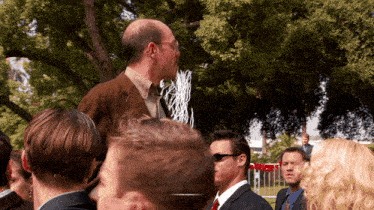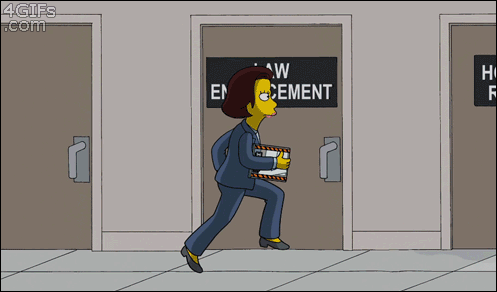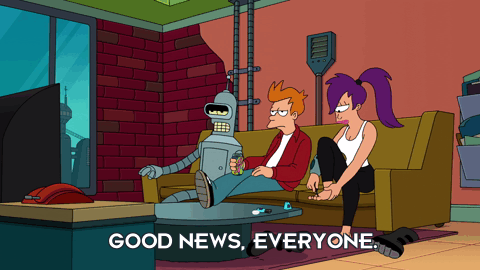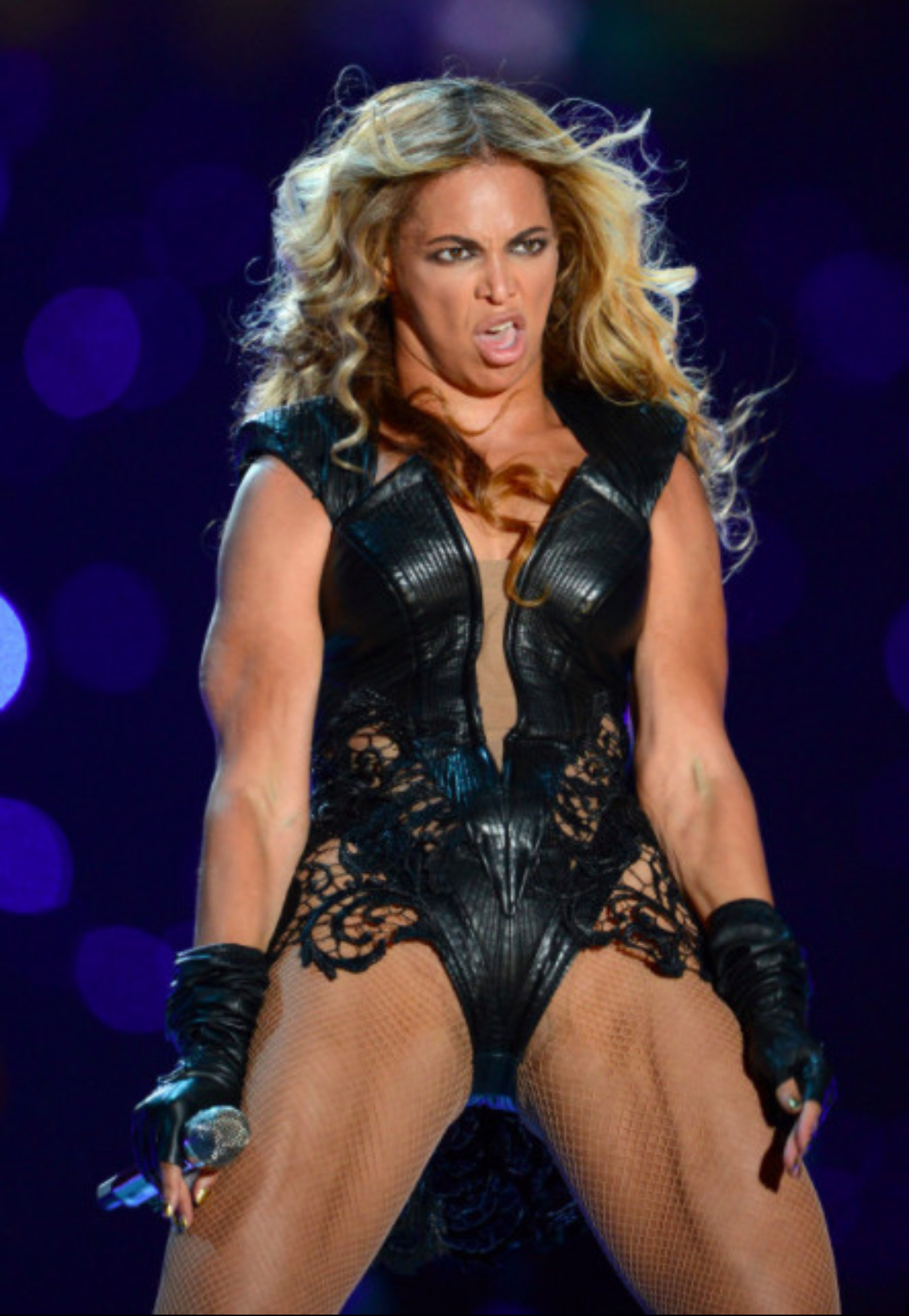You are using an out of date browser. It may not display this or other websites correctly.
You should upgrade or use an alternative browser.
You should upgrade or use an alternative browser.
Nintendo takes down ROM sites Nsw2u and Nswdl
- Thread starter ReyBrujo
- Start date
Heimdall_Xtreme
Hermen Hulst Fanclub's #1 Member
Like Hydra, they can close some places, but thousands will come.
Magic Carpet
Gold Member
Donut Steel
TheMule1983
Member
Because they're going after ROM sites with their IP?Maybe I should just sell my Nintendo Switch and be done with Nintendo altogether.
FoxMcChief
Gold Member
Seems like the only one losing out in that scenario is you.Maybe I should just sell my Nintendo Switch and be done with Nintendo altogether.

Justinus
Member
No. It's how aggressive and focused they are on protecting their IP.Because they're going after ROM sites with their IP?
Last edited:
DarkStream
Member
Never heard of them.


Gamer_By_Proxy
About to beat off
Morons should have hosted an Epstein client list. They wouldn't find shit.
Last edited:
Roman Empire
Member
Not surprised at all. The only surprise will be if there are no backup sites in 24hrs.
TintoConCasera
I bought a sex doll, but I keep it inflated 100% of the time and use it like a regular wife
So how does this affect the power scale?
Nintendo > MS > Satan?
Nintendo > MS > Satan?
chromhound
Member
Post them on a Pakistani website instead lol
Agent_4Seven
Tears of Nintendo
As we like to say it in Russia...
Никогда такого не было, и вот опять)))))
In all seriousness though...
If you're making outdated pos portable consoles for 2 decades and start implementing anti-consumer practices to make people pay for a fuckin' C botton on a goddamn controller, stupid ass features and all that, THEY WILL find a way to play your games the way it meant to be played - in the highest possible screen resolution with modern tech, the best visual quality possible with mods and with ZERO restrictions, ZERO. Deal with it, you fuckin' corporate greedy morons, cuz you'll never stop this.

Никогда такого не было, и вот опять)))))
In all seriousness though...
If you're making outdated pos portable consoles for 2 decades and start implementing anti-consumer practices to make people pay for a fuckin' C botton on a goddamn controller, stupid ass features and all that, THEY WILL find a way to play your games the way it meant to be played - in the highest possible screen resolution with modern tech, the best visual quality possible with mods and with ZERO restrictions, ZERO. Deal with it, you fuckin' corporate greedy morons, cuz you'll never stop this.

RoboFu
One of the green rats
Do it!Maybe I should just sell my Nintendo Switch and be done with Nintendo altogether.
Some Gaffers: "Its not about piracy..."
pirated roms site gets taken down
Some Gafers:

Last edited:
KormaChameleon
Member
Friendly reminder, fuck Nintendo.
nkarafo
Member
I don't have an issue with Nintendo or any other company hunting ROM sites that are distributing illegal material.Do it!
Some Gaffers: "Its not about piracy..."
pirated roms site gets taken down
Some Gafers:

I do have an issue though when they are after emulators.
TintoConCasera
I bought a sex doll, but I keep it inflated 100% of the time and use it like a regular wife
What's the meaning of this? I work with polish people and I see them putting this at the end of their messages.)))))
Agent_4Seven
Tears of Nintendo
GAF sometimes doesn't work and gives error messages when using emoji, that's why I typed ")))))" at the end which means LOL.What's the meaning of this? I work with polish people and I see them putting this at the end of their messages.
Last edited:
ReyBrujo
Member
What's the meaning of this? I work with polish people and I see them putting this at the end of their messages.
Padding for parity bit. Sorry, nerd joke.
Zacfoldor
Member
No. It's how aggressive and focused they are on protecting their IP.
Every company should be. Most companies are. If you don't protect it you lose it. If you allow it to be used you lose the right to protect it next time.
If you own a website with a logo and you see someone else use your logo, you are giving tacit permission for its use and others who use it will argue in court that permission was given to the first company so they didn't know they could not also use it.
If you don't protect it you lose it. Don't hate Nintendo over this. They have the most recognizable ip in the world. Mario and Pokemon would be ubiquitous if they did not protect it. The first time they let it slide would be ruinious. There is a reason they win in court, because they follow the law which it is best practice to fight for that IP and stop anyone else from using it.
Imagine if I made a game. Then it got leaked. Then people played it for 10 years. Then I tried to sue everyone who distributed it. I would lose because of the 10 years. If I did it after 10 days instead of 10 years I would win.
Don't believe me? Take it from AI:
Yes, if you don't actively protect your trademark, you risk losing it. Trademarks, unlike patents, can last indefinitely, but only if they are actively used in commerce and protected from infringement. Failing to use the mark or to enforce your rights against infringers can lead to the trademark being deemed abandoned, either by non-use or by becoming generic.
Here's a more detailed explanation:
1. Use it or Lose it:
- Active Use is Crucial:
Trademarks are granted and maintained based on the principle that they are actively used in commerce to identify and distinguish goods or services.
- Non-Use Abandonment:
If a trademark owner stops using the mark in connection with the goods or services for which it was registered, the mark can be considered abandoned. In the US, this typically requires a continuous period of three years of non-use.
- Enforcement is Essential:
Simply registering a trademark isn't enough. You must actively monitor the marketplace for potential infringers and take action (like sending cease and desist letters or pursuing legal action) to protect your rights.
- Loss of Rights:
If you fail to use the mark or enforce your rights, you could lose your exclusive rights to that trademark.
- Competitors Can Infringe:
Without protection, competitors can start using similar marks, leading to customer confusion and potentially damaging your brand's reputation and market share.
- Genericization:
If infringers are allowed to use your mark without challenge, it could become the generic name for the product or service, further weakening your rights.
- Loss of Priority:
If you don't renew your trademark, you risk losing priority rights, meaning someone else could register a similar mark.
- Rebranding Costs:
In severe cases, you might have to rebrand your business, which can be costly and disruptive.
- Register Your Mark: Registering your trademark with the relevant authorities (like the USPTO in the US) provides the strongest legal protection.
- Monitor for Infringement: Regularly monitor the market for any unauthorized use of your mark.
- Enforce Your Rights: Take appropriate action against infringers, such as sending cease and desist letters or pursuing legal action.
- Renew Your Registration: Pay attention to renewal deadlines to keep your registration active.
- Use Your Mark in Commerce: Continue to use the mark in connection with the goods or services for which it is registered.
Last edited:
ChoosableOne
ChoosableAll
Thank God we're all dumping our own roms out of our own cartridges.


Zacfoldor
Member
Thank God we're all dumping our own roms out of our own cartridges.


Last edited:
TheMule1983
Member
No. It's how aggressive and focused they are on protecting their IP.
You wouldn't be protective of something you created? Do you not work?
billthomas696969
Member
Wasn't it a bannable offense on here back in the day to condone/admit piracy?
Crayon
Member
Wasn't it a bannable offense on here back in the day to condone/admit piracy?
Long ago, I guess.
metareferential
Member
The only thing that will let us play our favourite (future) retro games is piracy (or rather: what they perceive as piracy).
There's no other way around it.
There's no other way around it.
Last edited:
TintoConCasera
I bought a sex doll, but I keep it inflated 100% of the time and use it like a regular wife
Nah don't worry, they'll keep selling overpriced roms like that Mario All-Stars collection.The only thing that will let us play our favourite (future) retro games is piracy (or rather: what they perceive as piracy).
There's no other way around it.
ReyBrujo
Member
Wasn't it a bannable offense on here back in the day to condone/admit piracy?
Back when VGChartz couldn't be used as source for sales.
GigaBowser
Banned
piriters


metareferential
Member
For their 2 main IPs, sure.Nah don't worry, they'll keep selling overpriced roms like that Mario All-Stars collection.
NeverYouMind
Member
Cut down one head and two more will grow in its place.


Kiya's Guard
Member
SomeNorseGuy
Gold Member
Ah well, I'll have to find unofficial demos another place I guess.
TintoConCasera
I bought a sex doll, but I keep it inflated 100% of the time and use it like a regular wife
They also have a collection of roms for many of their systems behind a paywall.For their 2 main IPs, sure.
You can't buy them, but they are there for those willing to pay.
Things have gotten kinda shitty.
Walter Matthau
Member
I see smug comments here and elsewhere about pirating Switch games on their PC handheld or waiting for Yuzu 2 to play Switch 2 games in 8k 240fps.
It's always because Nintendo deserves it for making weak hardware or because they're "anti-consumer" or some other random thing they feel like using for rationalizing it while they download the latest third party and indie games for free.
NSW2U goes down so now they need to pretend that they're concerned about preservation until they find another source and go back to being smug.
It's always because Nintendo deserves it for making weak hardware or because they're "anti-consumer" or some other random thing they feel like using for rationalizing it while they download the latest third party and indie games for free.
NSW2U goes down so now they need to pretend that they're concerned about preservation until they find another source and go back to being smug.
Hero_Select
Member
100% this.I see smug comments here and elsewhere about pirating Switch games on their PC handheld or waiting for Yuzu 2 to play Switch 2 games in 8k 240fps.
It's always because Nintendo deserves it for making weak hardware or because they're "anti-consumer" or some other random thing they feel like using for rationalizing it while they download the latest third party and indie games for free.
NSW2U goes down so now they need to pretend that they're concerned about preservation until they find another source and go back to being smug.
Mister Wolf
Member
They going for the jugular this generation.
Dr. Wilkinson
Member
No. Just to explicitly encourage it or give details on how to actually do it. I'm quite sure that is still bannable.Wasn't it a bannable offense on here back in the day to condone/admit piracy?
Last edited:
I Love Rock 'n' Roll
Member
SEGA says hiiiii and does what Nintendont again and again. Not only they don't care at all abour ROM sites but it's ok for fans to use Sonic for their fan games.Every company should be. Most companies are. If you don't protect it you lose it. If you allow it to be used you lose the right to protect it next time.
If you own a website with a logo and you see someone else use your logo, you are giving tacit permission for its use and others who use it will argue in court that permission was given to the first company so they didn't know they could not also use it.
If you don't protect it you lose it. Don't hate Nintendo over this. They have the most recognizable ip in the world. Mario and Pokemon would be ubiquitous if they did not protect it. The first time they let it slide would be ruinious. There is a reason they win in court, because they follow the law which it is best practice to fight for that IP and stop anyone else from using it.
Imagine if I made a game. Then it got leaked. Then people played it for 10 years. Then I tried to sue everyone who distributed it. I would lose because of the 10 years. If I did it after 10 days instead of 10 years I would win.
Don't believe me? Take it from AI:
Yes, if you don't actively protect your trademark, you risk losing it. Trademarks, unlike patents, can last indefinitely, but only if they are actively used in commerce and protected from infringement. Failing to use the mark or to enforce your rights against infringers can lead to the trademark being deemed abandoned, either by non-use or by becoming generic.
Here's a more detailed explanation:
1. Use it or Lose it:
2. Consequences of Not Protecting Your Trademark:
- Active Use is Crucial:
Trademarks are granted and maintained based on the principle that they are actively used in commerce to identify and distinguish goods or services.
- Non-Use Abandonment:
If a trademark owner stops using the mark in connection with the goods or services for which it was registered, the mark can be considered abandoned. In the US, this typically requires a continuous period of three years of non-use.
- Enforcement is Essential:
Simply registering a trademark isn't enough. You must actively monitor the marketplace for potential infringers and take action (like sending cease and desist letters or pursuing legal action) to protect your rights.
3. How to Protect Your Trademark:
- Loss of Rights:
If you fail to use the mark or enforce your rights, you could lose your exclusive rights to that trademark.
- Competitors Can Infringe:
Without protection, competitors can start using similar marks, leading to customer confusion and potentially damaging your brand's reputation and market share.
- Genericization:
If infringers are allowed to use your mark without challenge, it could become the generic name for the product or service, further weakening your rights.
- Loss of Priority:
If you don't renew your trademark, you risk losing priority rights, meaning someone else could register a similar mark.
- Rebranding Costs:
In severe cases, you might have to rebrand your business, which can be costly and disruptive.
By actively using and protecting your trademark, you can maintain your exclusive rights and prevent others from using your brand name or logo, ensuring your brand's long-term success.
- Register Your Mark: Registering your trademark with the relevant authorities (like the USPTO in the US) provides the strongest legal protection.
- Monitor for Infringement: Regularly monitor the market for any unauthorized use of your mark.
- Enforce Your Rights: Take appropriate action against infringers, such as sending cease and desist letters or pursuing legal action.
- Renew Your Registration: Pay attention to renewal deadlines to keep your registration active.
- Use Your Mark in Commerce: Continue to use the mark in connection with the goods or services for which it is registered.







